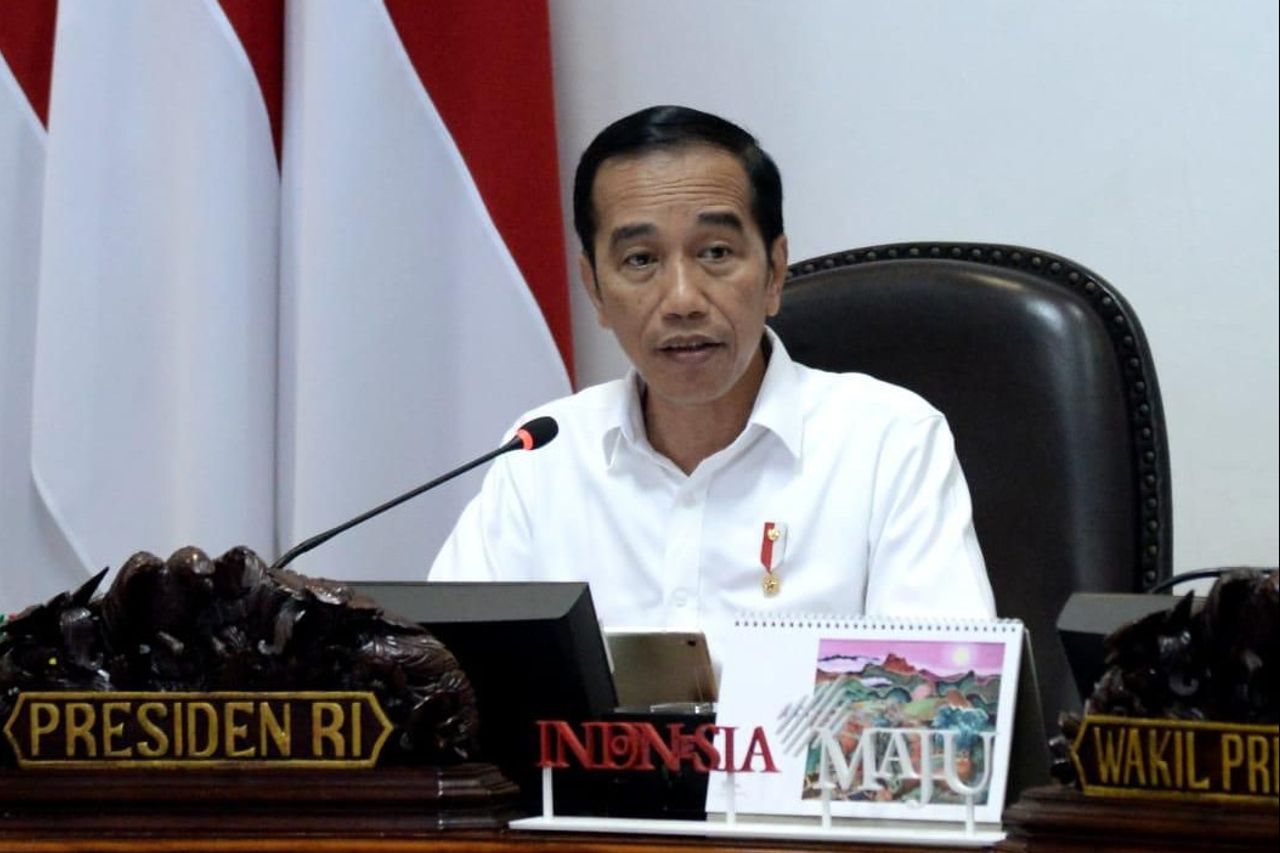Here And There, Rejecting Jokowi's Plan To Establish A Civil Emergency Status

JAKARTA - President Joko Widodo is considering establishing a civil emergency status when the transmission of the corona virus or COVID-19 gets worse in Indonesia. Just discussed, the status of civil emergency has already been rejected.
The status of civil emergency is regulated in Government Regulation in Lieu of Law (Perppu) Number 23 of 1959 concerning State of Danger.
Article 1 states, the President / Supreme Commander of the Armed Forces declares all or part of the territory of the Republic of Indonesia in a state of danger with the level of a civil emergency or a state of military emergency or a state of war.
The three conditions of emergency are specified in Article 1 paragraph 1, 2, and 3.
Article 1 paragraph 1, namely: security or legal order throughout the territory of the Republic of Indonesia is threatened by rebellion, riots or the result of natural disasters, so it is feared that it cannot be overcome by normal equipment.
Article 1 paragraph 2, namely: war or danger of war arises or there is a concern that the territory of the Republic of Indonesia will be raped in any way whatsoever; and Article 1, paragraph 3, namely that the life of the State is in a state of danger or from special conditions it turns out that there are or it is feared that there are symptoms that could endanger the life of the State.
In Article 3 it is emphasized that the ruler of the civil emergency is the President / Supreme Commander of the Armed Forces as the ruler of the Central Civil Emergency.
Komnas HAM commissioner Chairul Anam felt Jokowi had made a mistake regarding the discourse on the policy of civil emergency for corona. He said, the civil emergency was imposed to put people in order so that the wheels of government run orderly.
Meanwhile, what should be needed now is a health emergency. Because, currently health facilities in handling the corona virus are not optimal. This impact cannot be borne by citizens in a state of civil emergency.
"In the situation of COVID-19 which continues to increase, what should be used is a health emergency status. The main approach is in the interests of health, one of the ways it works is to build public awareness and solidarity," said Anam, Monday, March 30.
Health emergencies, said Anam, aims to ensure the health conditions of people who are threatened with contracting COVID-19. Health emergency status uses a health work pattern. Treatment is centered on health. Meanwhile, in a civil emergency, the pattern is policing. When society violates health goals and interests, there will be fines and social work.
"The paradigm of settlement and exit strategy for these two statuses is different. The threats are also different. Therefore, what is needed is a national health advisory. Improved governance," said Anam.
Rejection also came from the Civil Society Coalition for Security Sector Reform, namely ELSAM, Imparsial, LBH Jakarta, LBH Masyarakat, LBH Pers, ICW, PBHI, PILNET Indonesia, and KontraS.
Imparsial researcher Anton Aliabbas asked Jokowi to be careful in using the legal basis used to minimize interpretation bias and use of more targeted authority.
Because, referring to existing regulations, Anton said that his party urged the government to continue to refer to Law No. 24/2007 on Disaster Management and Law No. 6/2018 on Health Quarantine. They rejected Perppu No. 23/1959 on Dangerous Conditions.
Because, said Anton, COVID-19 is a condition caused by a catastrophic disease. In addition, the application of widespread social restrictions referring to health quarantine is necessary to avoid unnecessary securitization of health problems.
"The coalition considers that the government is not yet time to implement a state of military emergency and civil emergency. Given that social restrictions will be accompanied by sanctions, the Coalition urges the government to stick to the Health Quarantine Law," said Anton.
Apart from that, he continued, the government must also think about the economic, social and health consequences of the people affected by the emergency status policy, especially for vulnerable groups.
"The Presidential Decree regarding the determination of the status of a national disaster must also regulate the social, economic and health impacts on society," he added.
President @jokowi has set a new stage for the fight against Covid-19, namely: BIG SCALE SOCIAL RESTRICTIONS with HEALTH QUARANTINE. Only if things are so bad can lead to a Civil Emergency ~ #Jubir #BungJubir @JubirPresidenRI #GotongRoyongKemanuman pic.twitter.com/wAh61w4wCC
- Fadjroel Rachman (@fadjroeL) March 30, 2020
